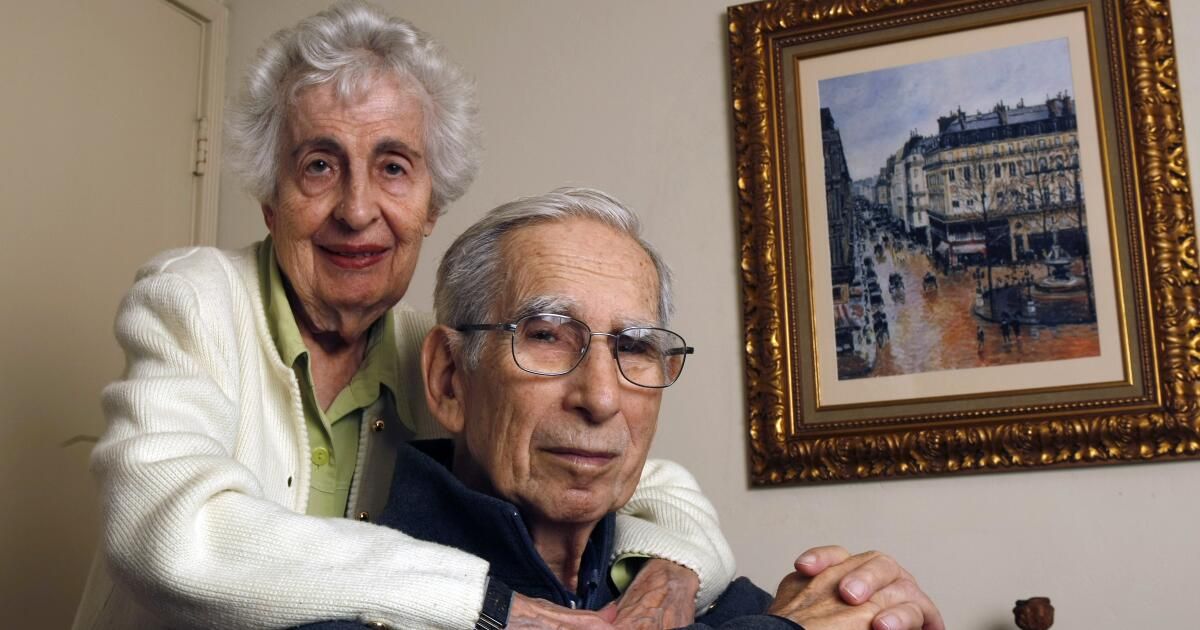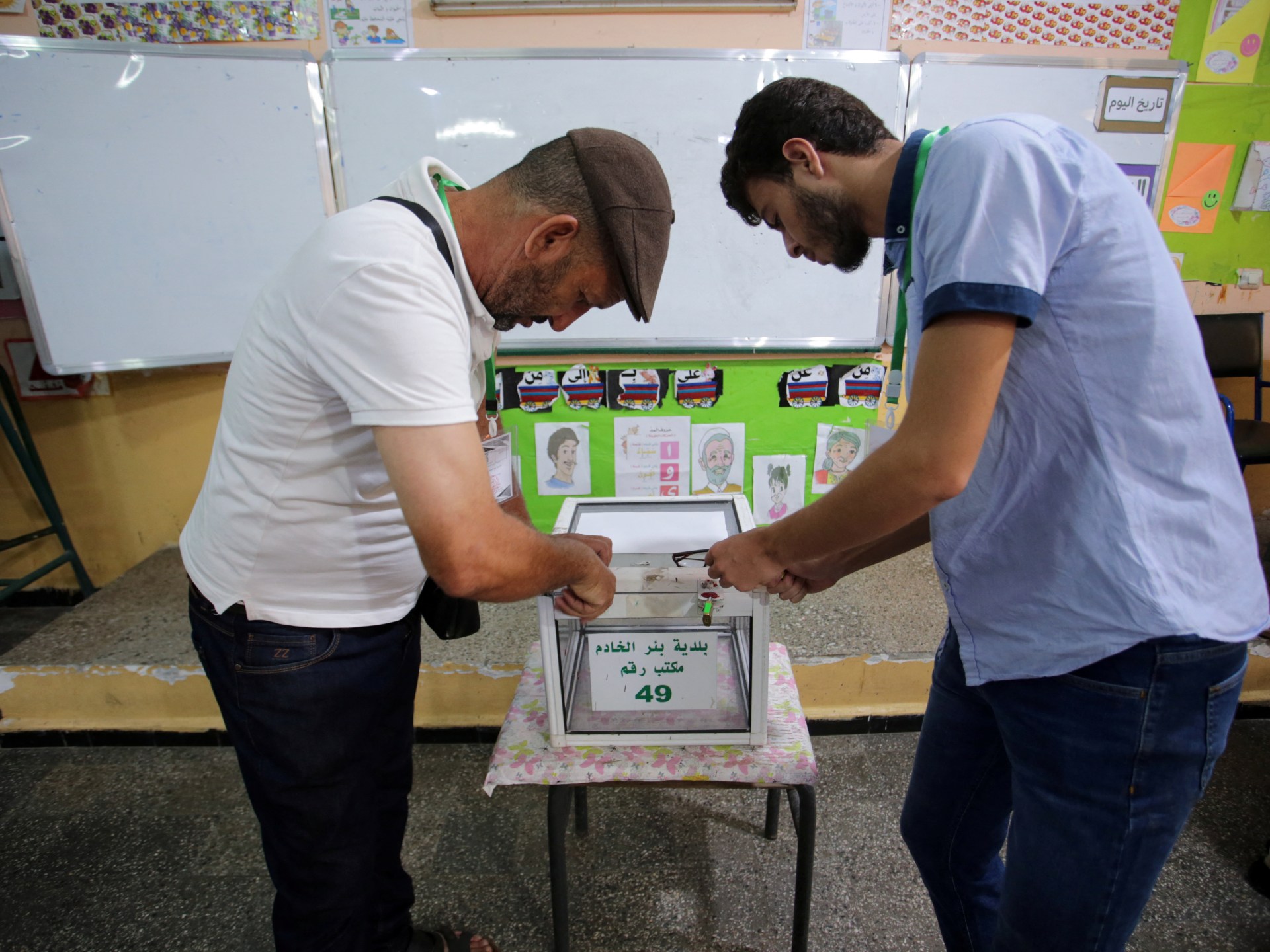California lawmakers have defied one of the nation's most powerful federal courts by enacting a new state law designed to reunite a Jewish family with an exquisite impressionist painting that was looted by the Nazis at the dawn of World War II.
The law, which Gov. Gavin Newsom put into effect immediately with his signature Monday, was crafted in response to a ruling by the U.S. Court of Appeals for the Ninth Circuit in January. That ruling found that the painting — Camille Pissarro’s “Rue Saint-Honoré in the Afternoon. Rain Effect” — was legally owned by a Spanish museum and did not need to be returned to the American descendants of Lilly Cassirer Neubauer, who gave the masterpiece to the Nazis in exchange for a visa to flee Germany in 1939.
The passage of the law, after nearly two decades of court battles, sets the stage for a desperate new effort by the family to recover the masterpiece, which is estimated to be worth tens of millions of dollars. Assembly Bill 2867 makes clear that California law requires that Nazi-looted artworks like the Pissarro, as well as other valuables stolen during past or future acts of genocide or political persecution, be returned to their rightful owners.
“For Holocaust survivors and their families, the struggle to regain ownership of artwork and other personal items stolen by the Nazis continues to traumatize those who have already been through the unimaginable,” Newsom said in a statement. “It is a moral and legal imperative that these valuable and sentimental pieces be returned to their rightful owners, and I am proud to strengthen California laws to help ensure justice for the families.”
Newsom signed the bill during a small meeting with families of Holocaust survivors at the Los Angeles Holocaust Museum. Neubauer’s great-grandson, David Cassirer, who lives in Colorado, attended the event and praised Newsom and the lawmakers behind the bill, including Assemblyman Jesse Gabriel (D-Encino), co-chair of the California Legislative Jewish Caucus, for “taking a definitive stand for the true owners of the stolen art.”
Cassirer said his late father, Claude Cassirer, who discovered the Pissarro painting had survived the war and launched the family fight for its return two decades ago, would be delighted with the support of his adopted state.
“As a Holocaust survivor, the proudest day of my father’s life was in 1947, when he became an American citizen,” Cassirer said. “He would be very happy and grateful that the people of the state of California have taken steps to ensure the return of the looted works of art to their rightful owners.”
Thaddeus Stauber, a lawyer for the Museo Nacional Thyssen-Bornemisza, the Madrid museum that houses the Pissarro, said late Monday he could not immediately comment.
The new law is broad in that it sets clear standards for how claims for stolen artwork should be handled under California law, providing a clearer path to reclaiming such artwork for American families who have suffered political persecution in the past, present, or future.
However, it is also extremely accurate in its application to the Cassirer case, around which it was built and to which it refers.
Neubauer searched for the painting for years after the war without luck and died without knowing whether it had survived the war.
Four decades later, in the early 2000s, her grandson Claude Cassirer discovered that the painting, to which she had left him the rights, had survived and was in the vast collection of the Museo Nacional Thyssen-Bornemisza, a major museum owned by the Kingdom of Spain.
When Claude Cassirer asked for the painting to be returned, the museum refused, so he filed a lawsuit in a US federal court.
In January, a three-judge panel of the Ninth Circuit ruled that the nature of the dispute required applying an archaic Spanish law that allowed title to stolen property to be transferred over time (and justified the museum’s acquisition of the painting), rather than a modern California law that conforms to international agreements by requiring that Nazi-looted artwork be returned to its original, rightful owners.
One of the panel’s judges, all of whom were appointed by President George W. Bush, said he agreed with the ruling even though it went against his “moral compass.” When a larger group of judges reviewed the decision, some found that the smaller panel had misapplied the law, but they were overturned.
By passing the new law, California lawmakers made clear that they believe the court misinterpreted state law. The text of the new legislation specifically states that it applies to the Cassirer case and that it should change the outcome.
Sam Dubbin, a longtime attorney for the Cassirers, said the family will now formally challenge the 9th Circuit's decision, including by citing the new law, which he called a “bright line” that “will prevent the ability of museums with stolen art to delay and distort, when truth and justice are within their grasp.”
“This new law is essential for truth, history and justice, for the Cassirer family and for future cases as well,” Dubbin said. It was not yet clear in what form the family’s legal challenge would be filed or in which court.
The long legal battle has substantially raised the profile – and probably the value – of the Pissarro painting and could set a useful precedent for other families seeking the return of looted artworks. Lawyers, art historians and others involved in such litigation around the world have closely followed the Cassirer case.
Gabriel said he intended the new state law to protect all victims of genocide, persecution and political plunder.
“Our effort will make clear that California law must trump foreign law, that California stands with Holocaust survivors, and that cases must be decided based on truth, justice and morality, not on the misapplication of legal technicalities,” he said.
David Schaecter, president of the Holocaust Survivors Foundation of America, said Holocaust survivors and their families are “very grateful” to Gabriel, Newsom and other lawmakers for passing the new measure.
“The looting of works of art and other property from Jewish families was an essential part of Hitler’s plan to annihilate the Jewish people and eradicate all traces of Jewish life and culture. Spain’s insistence on preserving the Cassirers’ Pissarro perpetuates the crimes of the Nazi regime and debases the memory of six million Jewish souls,” Schaecter said.
“Californians should be proud that their legislators will not allow this to happen.”












